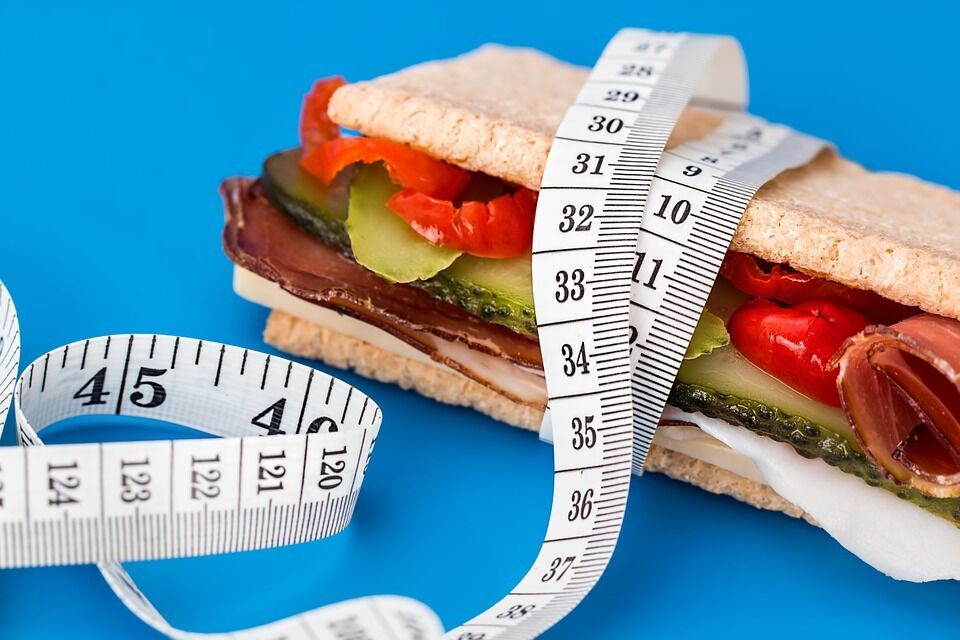News
What will happen to your body if you stop eating carbs: some changes are dangerous
To maintain physical and mental health, a person needs a nutritious diet that includes proteins, fats, carbohydrates, and various vitamins. However, many people prefer to sacrifice a healthy diet in order to lose weight.
People often choose a diet that involves a deficit or even complete removal of carbohydrates from their diet. Health Digest magazine found out what happens to the body when you stop eating carbohydrates and what changes can be dangerous.
A low-carbohydrate diet is called a ketogenic diet, which tends to limit carbohydrate intake to only 20-50 grams per day, while the average daily carbohydrate intake for men ranges from 155 to 185 grams per day, while for women, it is 120 to 170 grams per day.
Without carbohydrate intake, the body will turn to the reserve reserves in the liver, called glycogen. But over time, this reserve will run out and the human body will choose an alternative source of energy.
Drastic weight loss
Regardless of how much carbohydrate intake is reduced, a person is likely to see a significant weight change. Low-carb diets tend to result in rapid weight loss due to water along with some fat loss. The reason for the rapid water loss is that the body turns to glycogen stores when carbohydrates are eliminated.
However, this weight loss is usually not maintained for a long time, especially if the person does not build a long-term low-carbohydrate diet. Therefore, after the end of the diet, the opposite result can occur, which is rapid weight gain.
Frequent trips to the restroom
A low-carb diet can have different effects on a person's digestion. Therefore, the reaction to giving up carbohydrates can be too frequent visits to the toilet. Nutritionists note that every time a person excludes certain food groups from their diet, an imbalance occurs.
In this regard, the intestinal microflora feeds on short-chain fatty acids contained in grains, fruits, and vegetables, which are limited in the keto diet. When people avoid carbohydrates, they often consume more protein and fat. Therefore, it takes more effort for the body to break down fat, and if it cannot use all the fat it eats, digestive disorders occur.
Furthermore, in addition to increasing fat intake, many people on a low-carb diet turn to artificial sweeteners to replace carbohydrates. Certain types, such as sorbitol, xylitol, and maltitol, are poorly absorbed in the intestines and cause a laxative effect.
Diet can lead to "flu"
A common side effect of carbohydrate restriction can be the so-called "keto flu". About a week after starting the diet, a person may experience symptoms such as fatigue, headache, irritability, nausea, sleep problems, and constipation. It is important that this "flu" is never accompanied by fever and should not be confused with the real flu.
Scientists have found that such symptoms peaked in 300 people in the first week and then began to decrease after four weeks. According to the Harvard Health Blog, although it is called "flu," medical experts do not know why such symptoms occur. Nutritionists are also not sure if the side effects can be attributed solely to dietary changes.
The most popular "treatments" include increasing sodium intake, adding electrolytes, drinking broth (e.g., bone broth), and increasing magnesium and potassium intake.
Vitamin deficiency
Eliminating or reducing the amount of carbohydrates from the diet means that a person risks missing out on the vitamins and minerals they provide. According to the Academy of Nutrition and Dietetics, when people follow a low-carb diet, they often aim to keep their total carbohydrate intake per day under 50 grams.
For this reason, they usually do not consume foods such as bread, cereals, milk, and even fruits and some vegetables because they contain carbohydrates. However, many of these foods contain nutrients that are not found in low-carb foods.
Sleep disorders
An adult needs 7 to 9 hours of sleep per night. Without this healthy dose, the brain cannot function properly and the body wears out. Diet and lifestyle, including carbohydrate restriction, can have a significant impact on sleep duration and quality.
A study published in the journal Nutrition Neuroscience found that a ketogenic diet with very low carbohydrates significantly reduced REM sleep but significantly increased slow-wave sleep. The National Sleep Foundation explained that both of these stages are important, and not getting enough of them can affect a person's thinking, emotions, and physical health.
Memory impairment
The human brain is one of the most energy-consuming organs. Carbohydrates are usually preferred, but the situation will obviously change when carbohydrates are excluded from the diet. A 2009 study published in the journal Appetite examined cognitive abilities in women who followed a low-carbohydrate diet or a reduced-calorie diet.
The results showed that complete carbohydrate withdrawal led to a deterioration in memory-related tasks, which were then resolved after the reintroduction of carbohydrates. On the other hand, the same study found that the low-carb group reported less confusion and responded more quickly to vigilance tasks than the low-calorie group.
Blood sugar disorders
When a person consumes carbohydrates, they are digested and released into the bloodstream as glucose, which is used as fuel for the body. However, when a person gives up carbohydrates, the body begins to run out of glucose and needs to switch to ketones.
This process can potentially lead to a drop in blood sugar levels, also known as hypoglycemia, until the body adapts to the new source of energy. This won't happen to everyone, but people with diabetes or pre-diabetes should be careful.
Drinking alcohol while on a low-carb diet should be done with caution. After drinking alcohol, a 69-year-old woman who had been on a ketodiet for a year was hospitalized with hypoglycemia. Alcohol can disrupt glucose balance, causing hypoglycemia. Symptoms such as weakness, sugar cravings, and confusion may occur.
Heart and kidney disorders
When a person gives up carbohydrates, the deficit is usually compensated by other macronutrients: fats and proteins. Both are important aspects of the diet, but they can cause problems. Andrew Freeman, a physician and director of cardiovascular disease prevention and wellness at National Jewish Health, said that because of ketodieting and fasting, the popular media has been filled with claims, promises, and warnings that are untested and irrelevant.
Part of the problem lies in the type of fats eaten on a ketodiet. High intake of saturated fat can lead to an increased risk of cardiovascular disease and elevated blood lipids.
In addition, high protein intake from food can cause intrarenal hypertension, which can lead to renal hyperfiltration, glomerular damage, and proteinuria. In fact, all of these conditions have a negative impact on the kidneys and can lead to chronic kidney disease.
Earlier, it was reported that many seasonings have valuable health benefits as they can lower blood pressure, reduce inflammation, strengthen the immune system, and help prevent aging.
As a reminder, popular hot dogs can lead to serious health problems. It's not just about high-calorie content and the risk of obesity. Scientists have proven that eating even one hot dog can affect your health in the short and long term.
Only verified information is available on our Telegram OBOZ.UA and Viber. Don't fall for fakes!































